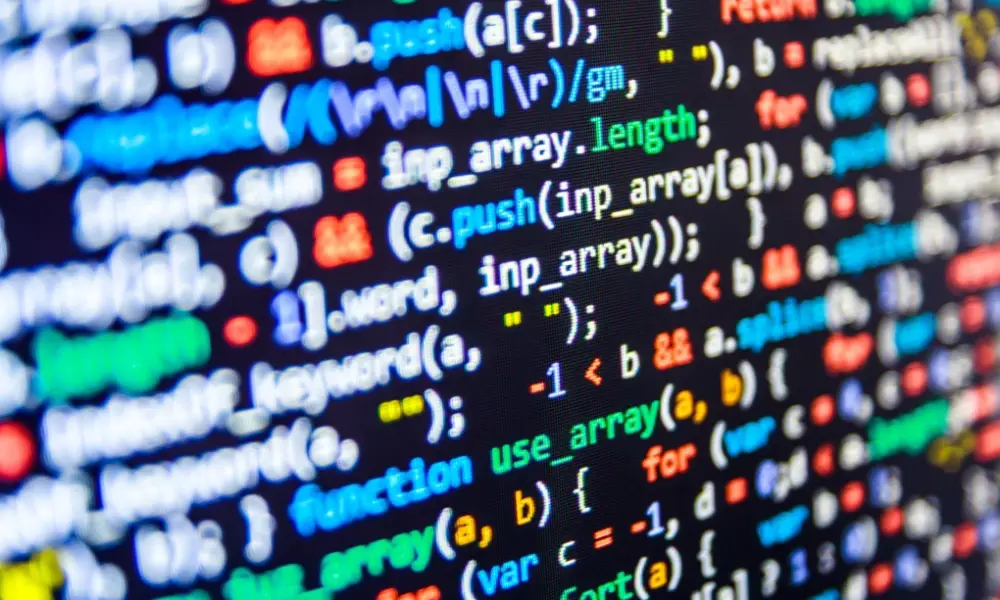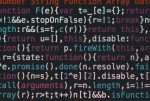There is no denying that, in an increasingly global world, learning a foreign language is an advantage; it teaches people about other cultures and opens the possibility to a more enriching experience when traveling overseas.
At the same time though, our world is becoming more computer-based, and as a result, three years in the future, the United States will have 1.4 million computer-science jobs, but only 400,000 student graduates qualified to fill them.
With so many changes on the horizon, younger generations need to enter the world poised with three languages: native, foreign and programming.
Programming is not just about pounding a keyboard until an app appears. Learning to write and understand code requires a range of competencies, all of which people need to know before entering our future world.
Computational thinking, or the ability to translate lots of data into abstract concepts and understand data-based reasoning, is an important skill for the future.
Why? Because it’s a skill that is developed by learning code but can be used across disciplines. Yes, that means even writers, biologists, marketers and psychologists can all benefit from a basic understanding of code.

In fact, programming itself can offer ways for people in many different professions to process the massive amount of data we can now collect, thanks to how prolific technology has become.
A marketer could write a program that recommends the best places to find interested clients, or a physicist could write a program to depict a theory to colleagues. Programming opens doors and allows people to express themselves and information in new ways.
Logic, a concept taught in high school mathematics and forgotten soon after, is another essential skill programming teaches. While many subjects can teach logic, programming is unique in that students can learn to perceive flaws in logic instantly. If the instructions you feed the computer don’t make sense, then your program won’t work; it’s up to you to go back through your programming, find the problem and fix it.
Students solve problems in math class all the time, but their motivation is rarely more than “I don’t want to fail this class.” With code, your motivation can be “Why won’t this video game I made run properly?” or “Why is the fashion app I made creating the wrong outfit combinations?” The stakes are higher for students because they create the problems and solve them.
Problem-solving is not only the top skill employers say millennials lack, it’s also the most transferable skill of the three. No matter what career you choose, you’re going to need to solve problems if you want to become successful.
Programming is 20 percent writing your code and 80 percent fixing your code, requiring you to find ways to make different parts of it work with each other by the process of writing, running, tweaking and trying again until the program runs (almost) flawlessly.
There’s no time to throw your hands up in defeat; if a bug is keeping your program from running, then you have a problem to solve. Finding ways to work around perceived barriers to achieve specific goals is what problem-solving is all about. Success is never a straight line, and learning to code programs drives that point home. Reaching a goal often requires extensive revision and a little creativity.
Lateral thinking is why programming languages can be applied to numerous subject areas. Many people may not recognize how useful that is because they haven’t realized that being an expert in one aspect of a career isn’t going to cut it anymore. The world is quickly building machines and creating programs that will become experts in single aspects of different fields.
As simpler jobs are disappearing due to automation, the newer jobs being created in their place are more sophisticated than their predecessors. It’s up to us humans to do what computers can’t, which is to think laterally. Coding is one way to turn seemingly unrelated subjects into relevant information in today’s society. Finding connections between art and math, music and physics or psychology and geology is becoming a sought-after skill.
With the ability to gather massive amounts of data on almost anything, we need a way to combine that data together to create meaning and insight. Jobs will require deeper, logical, lateral thinkers, meaning schools need to produce such thinkers, and adding programming to the high school curriculum is a great start. The world is changing, and the thought process of subsequent generations needs to change in order to keep up.
The United States will face a significant shortage of programmers come 2020. Businesses and industries all over the country will be looking to employ fresh-faced graduates. Not only will filling these new jobs help the economy by adding to the employment rate, but it could also be part of the answer to the looming specter of student debt that plagues almost every college student’s mind.
Most sources estimate US students owe a combined $1.3 trillion, and the average 2016 graduate owes a whopping $37,000, up 6 percent from the previous year. When compared with the average starting salary of a programmer, $60,000, adding code to your repertoire of skills certainly sounds like a head start regarding loan repayment, doesn’t it?
Keep in mind, just like a high school-level Spanish education probably won’t get you very far in Spain, high school level coding classes won’t automatically make you the next Steve Jobs. However, it does lay a foundation that can be utilized in college and beyond should you choose to use it.
Even if programming is not a career path you want to pursue, the computational thinking, logic skills, comfort with creative problem-solving and lateral thinking will serve you well in any career path you wish to pursue.
So, go ahead, mess around in JavaScript, research SQL or obsess over C++. You’re only expanding your knowledge base, making yourself a more well-rounded person, and preparing yourself for the ever-changing landscape of our world. Happy coding!


















[…] Read more from the source… […]